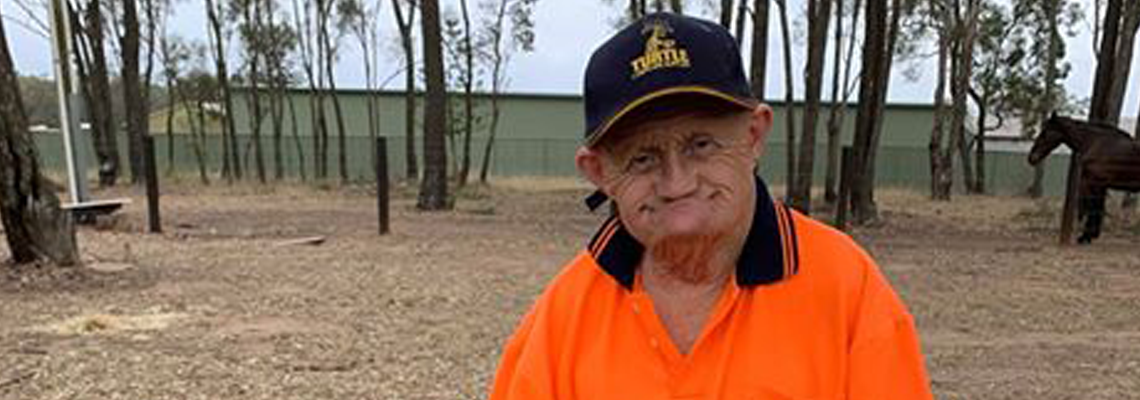We do have to agree that there’s no getting around the fact that it has been a busy couple years for our sector. First, we had the NDIS and CoS roll out; then last year the Quality and Safeguards Commission comes along, and now we’ve got a Royal Commission! Although it may seem all quite stressful, it is easy to forget that we are living through some exciting and historic times for people living with a disability.
With all the changes happening in the sector, you may be forgiven for not being across all the details of the Disability Royal Commission.
The Terms of Reference for the Royal Commission into Violence, Abuse, Neglect and Exploitation of People with Disability (Disability Royal Commission) are to explore what should be done to:
• prevent, and better protect people living with disability from experiencing violence, abuse, neglect, and exploitation
• achieve best practice in reporting and investigating of, and responding to violence, abuse, neglect, and exploitation
• promote a more inclusive society that supports the independence of people living with disability and their right to live free from violence, abuse, neglect, and exploitation.
The scope of this Royal Commission is extensive, especially when you compare it to earlier inquiries.
The Hon Ronald Sackville AO QC is the Chair of the Royal Commission. Ronald is a former judge at the Federal Court of Australia and has led many public inquiries before this one. He will be supported by:
• Ms Barbara Bennett PSM. Barbara has 20 years’ experience in senior roles the public service, including at the Department of Social Services and the Department of Human Services. Her mother and daughter both live with disabilities.
• Dr Rhonda Galbally AC. Rhonda has worked in disability rights and policy for decades. She developed the National Disability and Carer Alliance. Rhonda was a board member of the NDIA and Principal Member of the Independent Advisory Council to the NDIA. Rhonda lives with a disability.
• Ms Andrea Mason OAM. Andrea is a Ngaanyatjarra and Kronie Australian woman from Western Australia. She has worked in Indigenous Affairs in a variety of roles, including as CEO of Ngaanyatjarra Pitjantjatjara Yankunytjatjara (NPY)’s Women’s Council.
• Alastair McEwin AM. In his most recent role, Alastair served as Australia’s Disability Discrimination Commissioner. He was also involved in the drafting in the UN Convention on the Rights of People with Disability (UN CRPD). Alastair has lived with a disability since birth.
• The Hon John Ryan AM. John is a former NSW state parliamentarian and served as the Shadow Minister for Disability Services. He has held various senior positions in the NSW public service, including at the Department of Family and Community Services (FACS).
The Royal Commission will be based in Brisbane, but there will be hearings across the country. It has already started collecting evidence through submissions and community forums. We can expect an interim report no later than 30 October 2020, and a final report by no later than 29 April 2022.
The Disability Royal Commission is currently accepting submissions, which can be made by phone, email, or form. Submissions are the main opportunity providers and people with disability will have share their experiences with the Royal Commission. The Commission will provide accessibility support to enable people living with a disability and their families to make a submission.
People will also be given an opportunity to make confidential submissions.
The Royal Commission will also be running community forums around the country. Times and locations will be announced shortly on the inquiry’s website.
The Royal Commission will hold public hearings. They give the Commissioners the opportunity to question and cross examine people giving evidence. Just a note that Royal Commissions have the authority to summon witnesses.
Recommendations from the Disability Royal Commission can inform how the Quality and Safeguards Commission conducts its work. It is also worth remembering that the NDIS only provides support for 10% of Australians with disability. In contrast, the Disability Royal Commission will explore violence, abuse, neglect, and or exploitation against all people with disability.
The most common function of a Royal Commission is to make policy recommendations to the government. The government can choose whether they implement these recommendations. Royal Commissions are not able to institute compensation for victims, but they can recommend that the government sets up a victim compensation fund. The Royal Commission has also the power to refer matters to the police for further criminal investigation and prosecution, if necessary.
The Disability Royal Commission is going to be a difficult and triggering time for many people. There is no doubt that it will unearth some deeply disturbing stories that will stir difficult memories. But the experience of giving evidence for the purpose of creating change can be very empowering for people who have undergone trauma, if they are given the right support.

